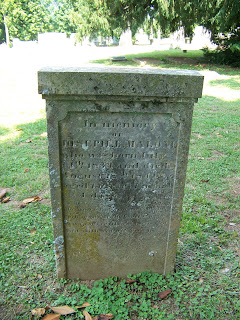Myth of Forrest by Ashdown and Caudill
I just finished the book The Myth of Nathan Bedford Forrest by Paul Ashdown and Edward Caudill. I've read so many books on that war that I didn't recognize the authors names. The writing was very familiar to me. It reminded me of another book I'd read on a famous personality of the Civil War. After reading over half the book, it finally dawned on me who these two authors were.
Both Ashdown and Caudill are professors of journalism at the University of Tennessee in Knoxville. They wrote the book The Mosby Myth reflecting on the life of John Singleton Mosby. Like the Mosby book, I was a bit disappointed about their writing. Both books speculate on what may or may not be correct in the present stories pertaining to Forrest and Mosby's lives.
The Wizard of the Saddle
Somethings they say make sense, but other things seemed to frustrate me. When they didn't have the facts to back up their claims, they simply cast doubt on the story. The biggest thing that frustrates me with the book is the fact that they continued to return to the same fact over and over. Nathan Bedford Forrest was a racist. Again, you have two people writing history from today's perspective. To be a fair historian, one cannot compare past values with present values. If the writers wanted to be fair to Forrest, they would have talked more about the belief system of all white people during that time period, not just Forrest's. Instead, they spend chapter after chapter attempting to compare Forrest to Greek myths. At one point, they even wonder if Forrest was a military genius. Maybe, both men should leave the historical writing to the historians and just concentrate on their specialty which happens to be journalism.
Let's compare the racist Forrest to other famous people of that war. Ulysses Grant, William Sherman, and David Porter all three ranted against the Jews. On December 17, 1862, Grant passed an order preventing Jews from passing into his lines. Sherman actually said that Africans (I will not use his word for the black race here), Mexicans, Indians, and Jews were all inferior to the white race. In 1859, Sherman wrote his wife, "the n____ here must of necessity remain slaves...damn the n____."
Let's not stop with three of the most famous commanders on the Northern side of that war, let's see what the President of the United States had to say. The following are the words of Abraham Lincoln, also known as the 'Great Emancipator'.
Lincoln in 1858: "I as much as any other man am in favor of having the superior position assigned to the white races."
Lincoln in 1859: "Negro equality! Fudge! How long, in the government of a God, great enough to make and maintain this universe, shall there continue knaves to vend, and fools to gulp, so low a piece of demagogism as this."
Lincoln to a black audience in 1862: "I think your race suffer very greatly, many of them by living among us, while ours suffers from your presence."
There is more and more that can be added by Lincoln, Andrew Johnson, Ulysses Grant, Sherman, and others as they rant about the superiority of the white race. What do you think would happen today if Romney was to say any of the above quotes? A good historian doesn't take today's values and apply them to times long ago.









































